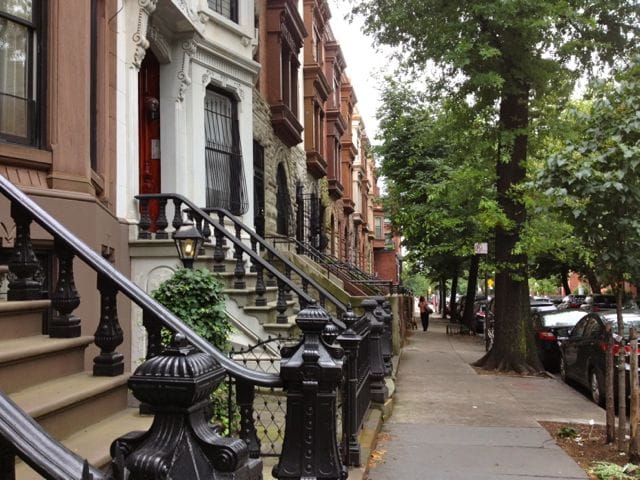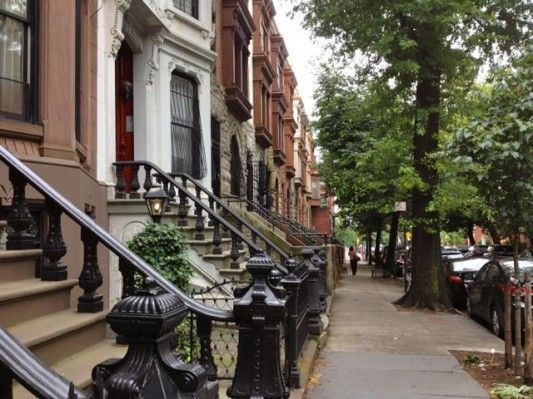Can You Be A Gentrifier If You Grew Up Here?


Park Slope native Nona Willis Aronowitz spent much of her childhood in brownstone Brooklyn and the East Village. But those neighborhoods aren’t what they were even a decade ago, which means that as an adult New Yorker on budget, she’s living in Harlem — and as she writes in the Atlantic Cities, that’s made a gentrifier in her home town. Her childhood turf is financially out of the question, Aronowitz says. Harlem makes fiscal sense. But does that mean she’s a gentrifier or a victim of gentrification? Is it possible to be both?
It’s not as if I can move back to my old stomping grounds, now populated by six- and seven-figure earners. Yet in my current location, I’m still pushing out even lower-income residents…. If I moved to an upper-class neighborhood, I would slow down gentrification in lower-income communities. But I’d also be actively participating in my own displacement.
And with property values on the rise (covering the story, Ditmas Park Corner points out Brooklyn rents are up 10% since this time last year), the gentrify-or-be-gentrified paradox of New York living isn’t limited to lifetime residents: the politics of demography affect us all.
So how do you think about where you live? If you’re a long-time Park Sloper, has it been a struggle to stay in the hood? And if you’re a newer transplant, how did your own socio-economic profile factor into your decisions about where to call home?



